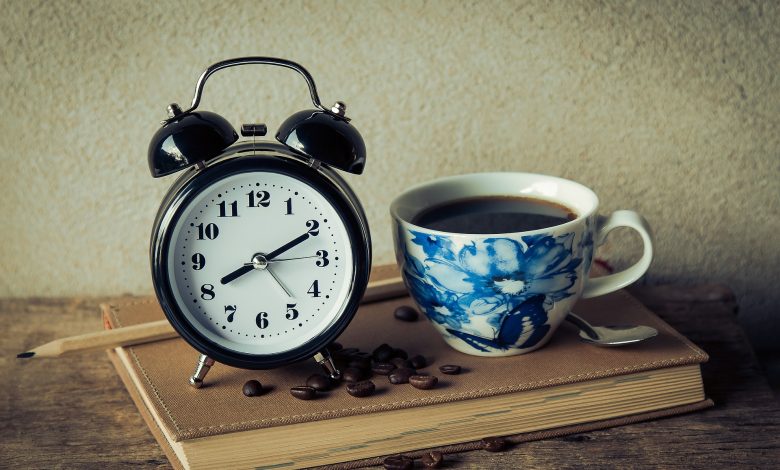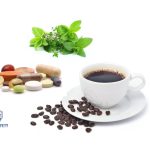How Long Should I Wait To Take Medicine After Drinking Coffee?

Food-drug interaction refers to the effects that certain foods or beverages can have on the absorption, metabolism, or effectiveness of medications. When certain foods or drinks interact with medications, it can alter their intended effects, potentially leading to reduced efficacy or increased side effects. Food-drug interactions can occur due to various factors, including the timing of medication administration, the composition of the food or beverage, and the specific properties of the medication.
There are different types of food-drug interactions:
1. Absorption Interactions: Some foods or beverages can affect the absorption of medications in the digestive system. For example, certain foods can slow down the absorption of certain drugs, while others can enhance absorption. It’s important to follow specific instructions provided by healthcare professionals regarding medication administration with food.
2. Metabolism Interactions: Certain foods or drinks can affect the metabolism of medications in the body. They can either inhibit or induce enzymes responsible for drug metabolism in the liver, which can impact the concentration and effectiveness of the medication. Grapefruit and grapefruit juice, for instance, are known to inhibit specific enzymes, leading to increased drug levels and potentially harmful effects.
3. Interaction with Specific Nutrients: Interaction with specific nutrients refers to the effects that certain foods or beverages can have on the absorption, metabolism, or efficacy of medications due to their nutrient content. Understanding and managing these nutrient interactions is vital to ensure the safe and effective use of medications and to avoid potential adverse effects or reduced therapeutic benefits.
4. Side Effect Interactions: Side effect interactions occur when certain foods or beverages can amplify or diminish the side effects of medications. Being aware of these potential interactions and following recommended guidelines can help individuals minimize the risk of unwanted side effects and ensure the safe and effective use of medications.
In this article, we’ll explore the question, “How long should I wait to take medicine after drinking coffee?” to help you make informed decisions about your health.
What is Coffee?
Before we delve into how long should I wait to take medicine after drinking coffee, it is important to fully understand coffee and why it should be taken into consideration while taking medications. Coffee is a popular beverage enjoyed worldwide, made from the seeds, or beans, of the Coffea plant. The coffee beans undergo a roasting process to enhance their flavors and aromas before being ground and brewed with water. Coffee has a complex chemical composition, consisting of various components that contribute to its taste, aroma, and physiological effects.
The most well-known and prominent component of coffee is caffeine, a natural stimulant that acts on the central nervous system. Caffeine provides the characteristic energy-boosting and alertness-enhancing effects associated with coffee consumption. It can also affect metabolism and various bodily functions.
Besides caffeine, coffee contains several other compounds, including:
1. Chlorogenic acids: These compounds are antioxidants found in coffee beans and contribute to the beverage’s bitter taste. Chlorogenic acids have been studied for their potential health benefits, such as antioxidant and anti-inflammatory properties.
2. Polyphenols: Coffee is a rich source of polyphenols, which are plant compounds with antioxidant properties. Polyphenols in coffee have been linked to potential health benefits, including reducing the risk of certain diseases.
3. Acids: Coffee contains various acids, including chlorogenic, citric, malic, and quinic acids, which contribute to the overall flavor profile of the beverage. These acids can also influence the acidity of coffee and may have effects on digestion for some individuals.
4. Volatile compounds: Coffee has numerous volatile compounds that contribute to its distinct aroma. These compounds are responsible for the wide range of flavors found in different coffee varieties, including fruity, nutty, chocolatey, floral, and earthy notes.
It’s important to note that the exact composition of coffee can vary depending on factors such as the coffee bean variety, growing conditions, roasting process, and brewing method. This variation contributes to the diverse flavors and characteristics found in different types of coffee.
How Long Should I Wait To Take Medicine After Drinking Coffee?
Coffee contains caffeine, a natural stimulant that can influence various bodily functions. Caffeine can affect metabolism, alter drug absorption and elimination, and potentially interact with certain medications. For example, coffee may interact with some antidepressants, such as MAOIs or SSRIs, leading to increased side effects or reduced effectiveness. Antibiotics like ciprofloxacin or norfloxacin may have reduced absorption when taken with coffee, and certain bronchodilators like theophylline can interact with caffeine, increasing the risk of side effects. Additionally, the combination of coffee with some medications used for heart conditions, anxiety, or insomnia may lead to increased heart rate, nervousness, or difficulty sleeping. It’s these interactions that necessitate caution when combining coffee and medication.
Considerations for Timing:
1. Absorption of Medications: Coffee can affect the absorption of certain medications by influencing gastrointestinal function. To allow for optimal absorption, it’s generally recommended to wait at least 1 to 2 hours after drinking coffee before taking medication. This timeframe allows your body to process and begin absorbing the coffee’s compounds.
2. Medications Affected by Stomach Acidity: Some medications, like certain antibiotics or antacids, require specific stomach acidity levels for optimal absorption. Coffee, with its acidity, can potentially interfere with these medications. Waiting for at least an hour after drinking coffee before taking such medications can help ensure proper absorption.
3. Caffeine Sensitivity: Individual caffeine sensitivity varies, with some people experiencing stronger effects than others. If you’re particularly sensitive to caffeine, it may be advisable to wait longer before taking medication to minimize potential interactions and side effects.
4. Specific Medication Instructions: Always follow the instructions provided by your healthcare provider or the medication label. Some medications may have specific guidelines regarding caffeine consumption or require you to take them with food, regardless of coffee consumption. In such cases, prioritize the instructions provided by your healthcare professional.
Consultation with Healthcare Professionals
While the aforementioned considerations provide general guidelines, it’s important to remember that everyone’s situation is unique. The best course of action is to consult with your healthcare provider or pharmacist regarding your specific medications and their potential interactions with coffee. They can offer personalized advice based on your medical history, current medications, and individual needs.
Conclusion
Coffee and medication can interact in various ways, and being mindful of timing is crucial for optimizing medication effectiveness and safety. Waiting for at least 1 to 2 hours after drinking coffee before taking medication is generally recommended to allow for proper absorption. However, individual factors such as caffeine sensitivity and specific medication instructions should also be considered.
Ultimately, it’s essential to communicate openly with your healthcare provider or pharmacist about your coffee consumption and medication regimen. Their expertise will help you navigate potential interactions and ensure you make informed decisions regarding your health. By striking the right balance between enjoying your coffee and managing your medication, you can maintain a healthy and balanced lifestyle.





